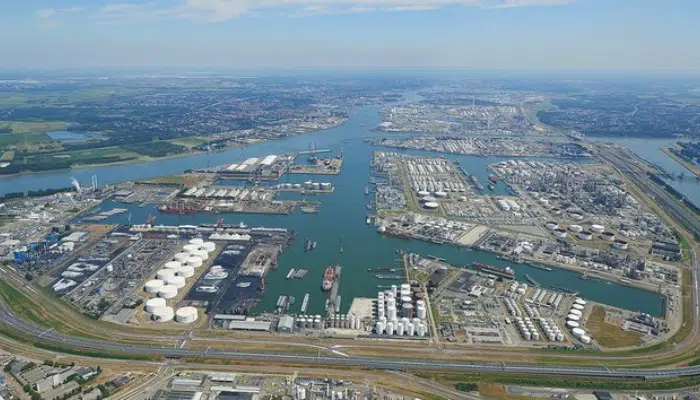
Image:port of Rotterdam
The Port of Rotterdam Authority and Yokogawa Electric Corporation have embarked on a groundbreaking feasibility study aimed at enhancing cross-industry collaboration to maximize energy and utility utilization within the Rotterdam industrial cluster. This initiative is a crucial step towards achieving the region’s ambitious decarbonization targets. Initial assessments indicate that optimizing electricity and utility usage across companies could result in staggering cost savings of up to 5%.
While individual companies in the petrochemical sector have honed their operations, concerns about confidentiality have hindered them from exploring collaborative opportunities within the industrial cluster. Breaking down this barrier, the Port of Rotterdam and Yokogawa are facilitating secure data sharing and deeper integration within the cluster. This unlocks the potential for substantial efficiency gains by optimizing production across entire industrial clusters.
Through the integration of various utilities like heat, electricity, and hydrogen, industrial flexibility can be heightened, leading to newfound efficiencies. For instance, in terms of electricity consumption, coordinating usage between neighboring companies can help manage peak demand, potentially alleviating electrical grid congestion in the port area.
This approach can be extended to other utilities as well. Companies generating excess steam, for example, can align their production schedules with neighboring companies in need, thus preventing wastage. Overall, this multi-utility approach holds promise for significant energy savings and emissions reduction.
As Europe’s largest port, housing over 200 industrial entities, the Port of Rotterdam is uniquely positioned to drive this project in support of the energy transition. Yokogawa brings to the table its simulation technology, which aids in optimal production planning, energy management solutions, and consulting expertise, uncovering efficiency opportunities across various industrial systems.
The preliminary feasibility study, conducted through computer simulations and in-depth consultations with companies in the Rotterdam port industrial cluster, revealed potential efficiency improvements of up to 5%. This stems from better alignment of electricity, heat, steam, and feedstock usage, resulting in reduced costs and a smaller carbon footprint. With deeper integration, the industrial cluster could see savings soar to 10%, paving the way for an “industrial sharing economy” characterized by resource and infrastructure sharing for highly efficient operations.
Following these promising findings, the Port of Rotterdam and Yokogawa have initiated a feasibility study involving petrochemical and energy companies in the cluster to identify specific use cases based on existing operations. The first results are anticipated by the end of 2023. If positive, the next phase will involve field trials with collaborating companies in the port, slated to commence in 2024.

